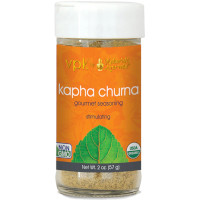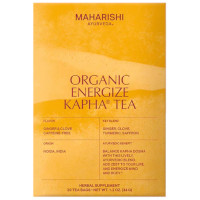
All About Kapha
Kapha-type people tend to have sturdy, heavy frames, providing a good reserve of physical strength and stamina. This strength gives Kaphas a natural resistance to disease and a generally positive outlook about life. The Kapha dosha is slow, and Kapha types tend to be slow eaters with slow digestion. They also speak slowly. They are calm and affectionate but, when out of balance, can become stubborn and lazy. They learn slowly, with a methodical approach, but also retain information well with a good understanding of it.
Kapha dosha controls the moist tissues of the body, so a Kapha imbalance may show up as a cold, allergies, or asthma. This is worse in Kapha season, March through June. Cold and wet weather aggravates Kapha. They should not dwell in the past or resist change. They need lots of exercise and need to be careful not to overeat. Kaphas need stimulation to bring out their vitality. Kapha dosha teaches us steadiness and a sense of well-being.
Kapha & Stress
Ojas is an Ayurvedic word that refers to our life energy. Translated, it means “vigor.” Stress greatly reduces ojas, which then weakens the immune system. When ojas is low, disease can follow.
To replenish ojas, follow the routine for your mind/body type. Some foods, such as milk and ghee, are especially good for increasing ojas. Meditation is the best thing you can to alleviate stress and thereby increase ojas.
Kapha Tea is a stimulating blend of spices that perk up body and mind, Kapha Tea is guaranteed to wake you up.
Kapha & Sleep
Kaphas need deep sleep, or they’ll be groggy and ineffective, but they don’t necessarily need a lot of sleep. Kaphas love to sleep, and often have a hard time waking up in the morning!
Ayurveda recommends that everyone keep a regular bedtime and morning routine. Bedtime should be at the same time each night, preferably at 10:00 P.M. The hours before bed should be spent with quiet activity, Yoga, and meditation. You should awaken at dawn, between 6:00 and 8:00 A.M., and proceed with your daily rituals.
Drink Kapha Tea any time of the day for its stimulating effect or especially when feeling lethargic, overweight, digestion is slow, or when the weather is cold and wet.
Stimulating Massage Oil for Kapha
Kapha & Digestion
Ayurveda teaches that good digestion leads to good health and poor digestion can bring disease. Each mind/body type digests differently. It is important to understand your mind/body type and how it digests food when planning your meals.
Kapha digestion is slower and heavier. Kaphas should favor warm, light food. Food should be as dry as possible, cooked without much water. Tastes should be pungent, bitter, and astringent. Kaphas prefer spicy food, which promotes better digestion for them.
Print the Kapha Diet Info Sheet
Kapha & Colds
Kapha colds and flus are those with a lot of mucus, runny nose, congestion, headache, and mild fever. Follow the Kapha routine and drink warm Kapha tea to help bring the body back into balance.
Kapha Ayurveda Products
See all Kapha products on MAPI here
Ayurveda Tip:
Pitta types are most sensitive to sight.
© 2024 Coffey Talk. All rights reserved.












